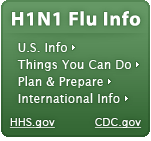
Neuroblastoma Treatment (PDQ®)–Health Professional Version
SECTIONS
- General Information About Neuroblastoma
- Cellular Classification of Neuroblastic Tumors
- Stage Information for Neuroblastoma
- Treatment Option Overview for Neuroblastoma
- Treatment of Low-Risk Neuroblastoma
- Treatment of Intermediate-Risk Neuroblastoma
- Treatment of High-Risk Neuroblastoma
- Treatment of Stage 4S Neuroblastoma
- Recurrent Neuroblastoma
- Changes to this Summary (08/09/2017)
- About This PDQ Summary
- View All Sections
Changes to this Summary (08/09/2017)
The PDQ cancer information summaries are reviewed regularly and updated as new information becomes available. This section describes the latest changes made to this summary as of the date above.
Added text to state that MYCN amplification may be detected by fluorescence in situ hybridization in only a subclone of the tumor cells. In these cases, the clinical outcome reflects the prognostic background of the tumor in which the heterogeneous amplification is found (cited Bogen et al. and Berbegall et al. as references 51 and 52, respectively).
Added text to state that in a retrospective review of 132 children with neuroblastoma, technetium Tc 99m-methylene diphosphonate (99mTc-MDP) bone scintigraphy failed to identify unique sites of metastatic disease that would change the disease stage or clinical management. Bone scans can be omitted in most cases (cited Gauguet et al. as reference 5).
The Description of Revised International Neuroblastoma Response Criteria (INRC) subsection was extensively revised.
Added text to state that a large multicenter randomized trial demonstrated that after induction with cisplatin, carboplatin, cyclophosphamide, vincristine, and etoposide, busulfan/melphalan resulted in an improved event-free survival, without an effect on overall survival and severe adverse events, compared with carboplatin/etoposide/melphalan (cited Ladenstein et al. as reference 18 and level of evidence 1iiA).
Added temozolomide, irinotecan, and dinutuximab as a chemotherapy regimen treatment option for recurrent or refractory neuroblastoma in patients initially classified as high risk (cited Mody et al. as reference 16).
Added text about the APEC1621 (NCT03155620) trial as a treatment option under clinical evaluation for recurrent or refractory neuroblastoma.
This summary is written and maintained by the PDQ Pediatric Treatment Editorial Board, which is editorially independent of NCI. The summary reflects an independent review of the literature and does not represent a policy statement of NCI or NIH. More information about summary policies and the role of the PDQ Editorial Boards in maintaining the PDQ summaries can be found on the About This PDQ Summary and PDQ® - NCI's Comprehensive Cancer Database pages.
































No hay comentarios:
Publicar un comentario